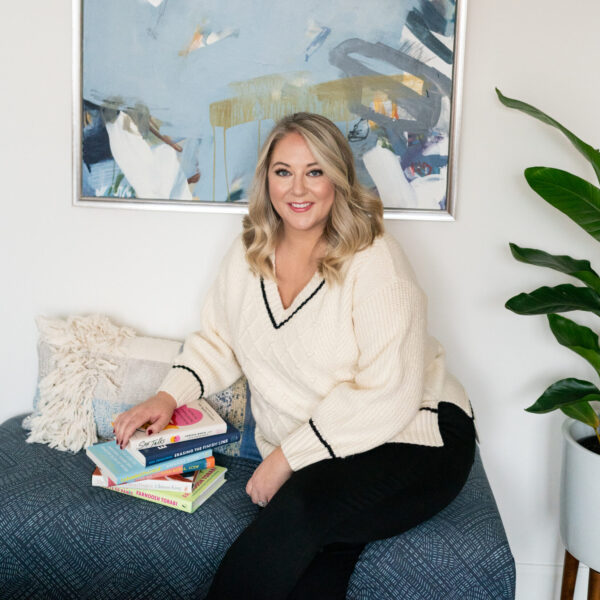
How to Write a Winning Book Proposal
How to Write a Winning Book Proposal
If you feel overwhelmed thinking about how to write a winning book proposal, I’ve got you. This blog post will help you make progress on your proposal and make your book dreams a reality!
There’s so much contradictory evidence out there about how to write a book. What’s even more daunting is pouring all your time and energy into this make-or-break document without being confident that it has what it takes to succeed.
The truth is that your book proposal is the most critical step to getting a book published. And, there are a few key components that can drastically improve your chances of signing a book deal.
So in this candid blog post, I’ll share my professional experience as a former publishing executive who’s vetted thousands of proposals, and as a coach who helps aspiring authors create competitive book proposals that have agents and publishers jumping for joy.
I’ll lift the veil on what book agents, coaches and publishers think about as they review book proposals.
And I’ll give you the inside scoop from two very respected literary agents, Jan Baumer and Steve Troha of Folio Literary Management, about what agents are really looking for in 2023.
Sound good? Let’s get into how to write a winning book proposal.
Pre-Book Proposal: Define Your Purpose
Whenever I meet aspiring authors, I’m always on the lookout for the same thing the agents and publisher are; specifically, are your motives in writing the book aligned with the book’s mission?
Let me explain.
The authors I work with are well-respected business owners or experts in their field. While they’re all incredibly talented, they’re also impact-driven.
They want to be of service, meaning they genuinely want to share their experiences, knowledge and perspective by relating to others or teaching (usually a combination of all!) in their book.
If this is you, awesome!
However, if you’re thinking about writing a book to make a lot of money, get on the New York Times best-seller list or become an overnight cultural sensation, you need to take some time to self-reflect, and here’s why…
Agents and publishers will see your true motives because they will come through in your writing. Moreover, when you have an authentic purpose, it will become the through-line that guides your reader.
You may be the next author bound for international best-seller status 🙌, but it shouldn’t be what drives you.
Now that we’ve established the importance of your purpose let’s get into what agents and publishers are paying attention to as they review your book proposal.
Check out this post if you’d like to read exactly how to write a book proposal step-by-step.
What Agents and Publishers Are Looking For
The book proposals that really wow agents and publishers highlight a combination of the author’s expertise, personality and marketability.
As someone who’s worked for a publishing house vetting and accepting book proposals, and now as a consultant and book coach, I look for the same things agents will look for as they assess your idea.
Here, I’ve included 7 key questions to ask yourself as you think about and write your book proposal. 
7 Things Agents and Publishers Are Looking For In Your Book Proposal
1. Are you writing a book close to your expertise?
In the non-fiction realm, the most impactful books are written by authors so steeped in their knowledge and/or experience that a book becomes a natural and expected next step with their audience.
In other words, they can carry the conversation over from their platform to book format because they focus on what they’re good at AND what their audience is looking to them for.
If you’re thinking of writing a book about something else, it’ll likely result in a disconnect and some heavy lifting to convert audience members to readers.
For example: Is your platform focused on healthy eating, and the book you want to publish is about financial investing? Eek! That’s a tough sell to your audience, and publishers likely won’t take the risk.
- Have you done the foundational work well?
The foundational work of writing a book is the book proposal. I’m most passionate about this part of the process because it sets you up for writing success and it gets you in the door to prospective agents and publishers.
In addition, it helps you dial in your idea and spell out who you are, what you have to offer and to whom.
How you write the book proposal is your ticket to serious consideration and representation for your book, so it must check the critical boxes that agents want to see.
Click here for an in-depth, step-by-step Book Publishing Roadmap you can download and follow.
- Do you have social proof or feedback from an invested and engaged audience?
You’ll hear the word “platform” tossed around a lot in publishing. When I bring the topic up with authors, panic sets in as they frantically check the number of followers they have on their social media platforms.
But your platform isn’t solely defined by one channel.
Your platform could consist of your client list, members of a related organization, or the board you sit on. It could be members of a group program you lead or a membership community you host.
The most crucial aspect of your platform is that you have an engaged audience that is genuinely and consistently interested in and values your work.
It’s important because your audience’s engagement is a key indicator to agents that your book will be well-received and sell well.
- Are you ahead of the game on your book topic?
You don’t have to be a writer to know that the book business is tough to crack, and there are thousands of books debuting every week.
While this is true, there’s a formula that has historically been very successful in helping to stand out from the crowd.
The key to coming up with your book idea is to bring your fresh and unique spin to something tried-and-true without freaking the publisher out with something way out of left field. Tried-and-true = a proven market for publishers (which means less risk for them)
So when you’re thinking about the direction of your book, consider the formula of expertise + your new perspective + tried-and-true.
The not freaking out part I mentioned above? That goes hand in hand with the main point of the next section.
- Do you have an idea that’s easy to sell?
Generally, agents want an easy sell or a topic that lights them up. I often hear from authors who agents or publishers have rejected, and naturally, they take it hard.
But here’s the thing: first and foremost, it’s important to remember that agents are not in the business of deeming something “good” or “bad.”
“Agents are in the business of figuring out what they can personally sell to a publisher and what will sell to a broader audience.”
And that’s why writing a compelling and well-structured book proposal is so crucial.
Want my help writing your book proposal? The Book Proposal Blueprint is my 10-week immersive program in which I guide you through each step of the process. Click here to learn more.
- Are you in there? It Is About You.
Book proposals carry a lot of weight, so it makes sense that authors want them to read as polished and professional as possible.
And while I agree that your proposal makes the ultimate first impression, it shouldn’t read like a tech manual!
I often see these incredibly dynamic personalities I work with in person and over Zoom absolutely disappear in their proposals — and it’s the kiss of death! You want to show them who you are!
As Jen and Steve will attest later in this post, agents and publishers are buying into the author as much as the book, so it’s important to showcase your personality in the proposal.
And that leads me to the final point of consideration – are you providing proof of concept?
- Are you proving yourself and providing the receipts?
Let’s say you’re promising to write something that will change lives, or you’re writing something that says, “I have a plan for…” in your book proposal.
If so, you must show the agent how you’ll communicate it and prove that it works and resonates with people.
Here are a few ways to detail that in your proposal:
- How long have you been running your program or sharing your methodology?
- What are the results?
- How do you show up as a teacher/leader/business person on your social channels?
- What is the response to your teaching or ideas? What are people saying about the transformation you provide?
To confidently answer these questions, you’ll need to be out in the world doing your thing before you write your non-fiction, prescriptive book.
If you’re writing a memoir or fiction, the agent and publisher will look for a strong storyline that reads like fiction, where they drop into the action and get lost in the story.
Now that we’ve covered some of the key considerations to bolster your book proposal, let’s get the inside scoop from two book agents who’ve done and seen it all in the publishing industry.
Two Agents Get Candid on Getting Your Book Published
Part of my job as a book coach and consultant is to develop top-notch book proposals that agents can sell quickly — a win-win-win for author, coach, and agents.
The relationships I have from working in-house at Hay House, and as a book consultant, inform my approach and give me an edge as a book coach. I often make introductions that lead to book deals.
So in this section, I’ll share the insider tips from my conversation on episode #40 of the Bound + Determined podcast with friends and book agents Jan Baumer and Steve Troha.
Here’s what they want you to know:
- Take the help!
So many authors believe they have to go it alone, but there’s so much help available to you in the form of platform assistance, editorial work or full-on writers.
There’s no shame in getting the support you need, and almost every New York Times bestselling author we’ve worked with had emotional and writing help.
- Make sure your platform content aligns with your book content.
Whether you have a large or small platform following, you must know what people are coming to you for.
Here’s what I mean. Let’s say you’re an entrepreneur with an engaged audience who’s writing a book.
Are people coming to your Instagram account because they love the programs and tips your company offers? Or are they coming to you for your personal opinions and interests?
If there’s a disconnect between what people follow you for and what you’re trying to sell in the book, people may not respond.
Remember the healthy eating/financial investing example above? That’s what they mean.
- Social media is fickle. How will your business support the marketing of your book?
Publishers are increasingly becoming more sophisticated in understanding author’s platforms. Instead of looking solely to social media, they’re starting to look under the hood of author’s businesses to see what streams they have in place to support their book long term.
Some things they’re looking for and assign value to are:
- Newsletter email lists
- Group programs
- Online courses
- Speaking engagements
- Podcast audiences and appearances, etc.
The more you can show agents and publishers your audience channels in your book proposal, the easier it will be for them to see how it’ll sell.
- New is cool; proven is better.
One of the most research-based parts of writing your book proposal will be the competitive/comparative analysis. But, as Steve and Jan agree, publishers make their decisions based on what has worked in the past.
Steve advises that having a new, never-been-done-before idea isn’t the best approach because it puts the onus on agents to find a comp and argue that it’ll work.
So putting your book front and center alongside others that have proven to sell, while highlighting what you have to offer, allows the agent to envision it working.
- Write in your voice.

I’ll let Jan take it from here:
“I want to see the author’s voice from the very first page. I want the entire proposal to be in voice, and I don’t want descriptions that leave me feeling cold. I want to be pulled in from the very first sentence of the overview.”
If you’ve been reading this blog or listening to my podcast, you know I couldn’t agree more.
No matter how impressive your credentials or experience, a book proposal won’t help you get a book deal if it reads like a robot wrote it!
Insert your personality, and use words and phrasing that sound like you when you speak. Your charisma and passion should jump off the page and make the reader want to learn more! They should FEEL your energy.
These are just some of the highlights from the episode — click here to listen to learn how:
– many months it’s taking for book deals to close as of December 2022
– book coaches and agents can become your book therapist
– how to find the perfect publisher.
Epilogue: Your Book Proposal Will WOW Agents and Publishers
In this post, we’ve covered a lot about the things to consider to write a book proposal that’ll wow agents and publishers.
As an advocate for authors, I’m here to be honest with you about the process, so you have the expertise and support to put your best book proposal forward. You can always expect full transparency from me!
If you follow the advice in this post, you’ll be in a better position to write and submit a book proposal that convinces agents you’ll deliver a book that will sell.
And if you’d like more hands-on support, check out my Book Proposal Blueprint program. In this 10-week immersive program, I guide you through creating a book proposal that’ll have agents excited to sign you and publishers excited to bring your book to life.
Sending you Big Book Energy!
Share this post!
The Truth About Imposter Syndrome & Inspiration
So, if you’re ready to kick imposter syndrome to the curb and grab your book-writing journey by the horns, you’re in the right place.
Rethinking Bestseller
Becoming a bestseller is a wonderful accomplishment, but for many who seek to see their books on shelves, it’s not the end-all-be-all, and for a vast majority, it’s a goal that can be more harmful than good.
Write a Book in 2024: Activate Your Plan
Activate your plan to write a book in 2024 by taking small, intentional steps that are proven to create momentum and inspiration.
Need a roadmap to publishing your book?
I’ve got you covered!
Enter your name and e-mail below and I’ll send you my roadmap for developing your book idea. You’ll learn how to attract the right agents and publishers, and be on your way to getting your book out into the world!



